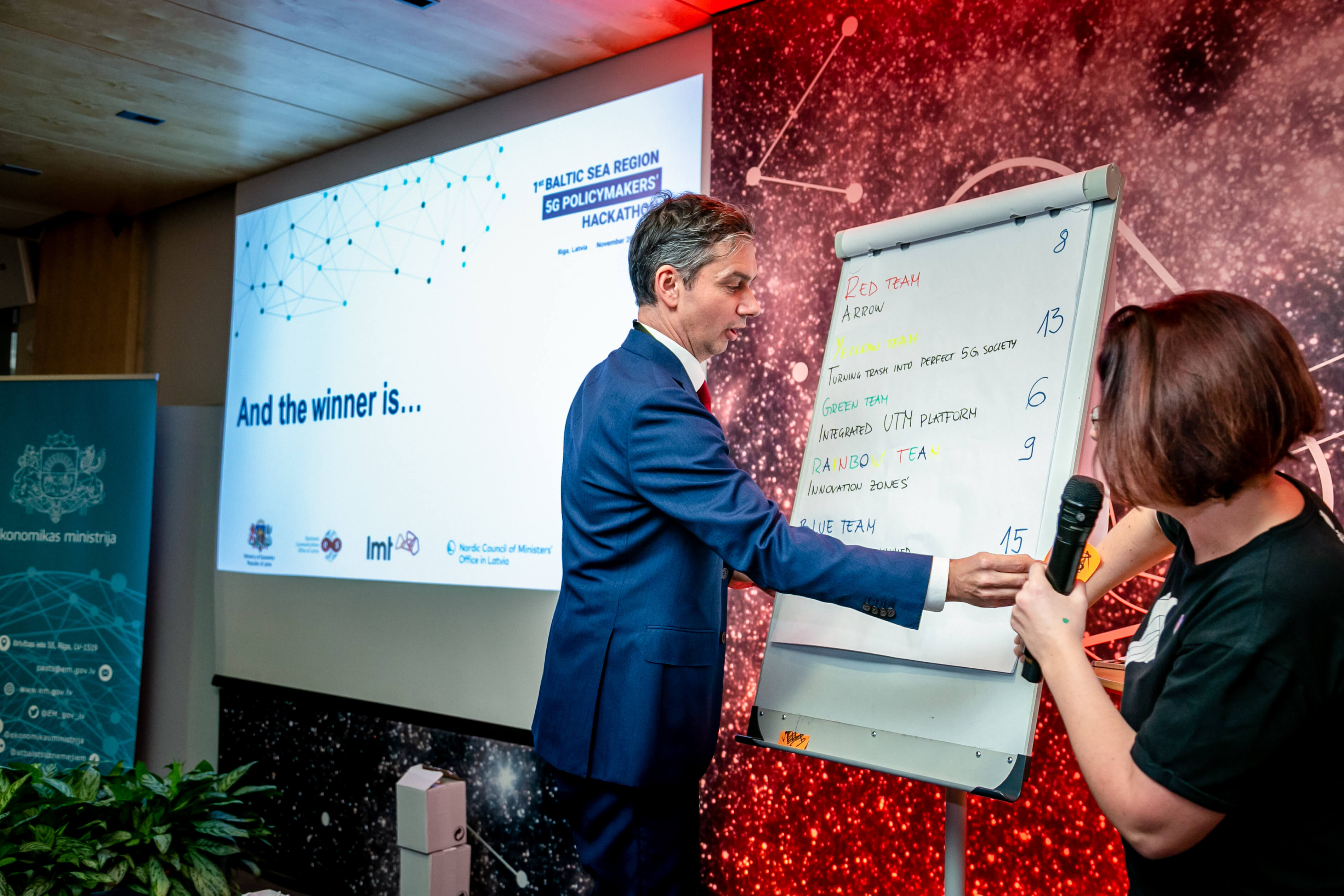
5 policy recommendations from the first-ever 5G policymakers’ hackathon*
04.12.2019
News
On November 26-27, dots. participated in the first-ever 5G Policymakers’ hackathon, taking place in Riga, Latvia. More than 35 policymakers, industry representatives, lawyers from all over Europe came together to create recommendations for Baltic Sea Region policymakers, for creating a better environment for the creation of 5G-enabled innovation, testing, and deployment, thus boosting the region's competitiveness globally.
Technologies are evolving exponentiality, while the policymaking process is lagging behind – policies are still created the same way they were 30 years ago, while the tempo of technological development has increased manyfold. The Ministry of Economics of Latvia believes that it is the policymaker's responsibility to create a safe and innovation-friendly environment to increase the economic competitiveness globally, which is why they have spearheaded the hackathon under the framework of the 5G Techritory Forum.
This policymakers’ hackathon is an attempt to create a methodology for faster and better policymaking process. The first 5G Policymakers’ hackathon was a great success, bringing together over 35 individuals for two days and brainstorming, mapping and creating recommendations for policies in 5 different verticals.
All the participants where really engaged to brainstorm and create solutions for the 5G related problem situations for the whole 2 days, thus creating 5 completely different solutions of how policymakers can create a better environment to enable 5G related innovations.
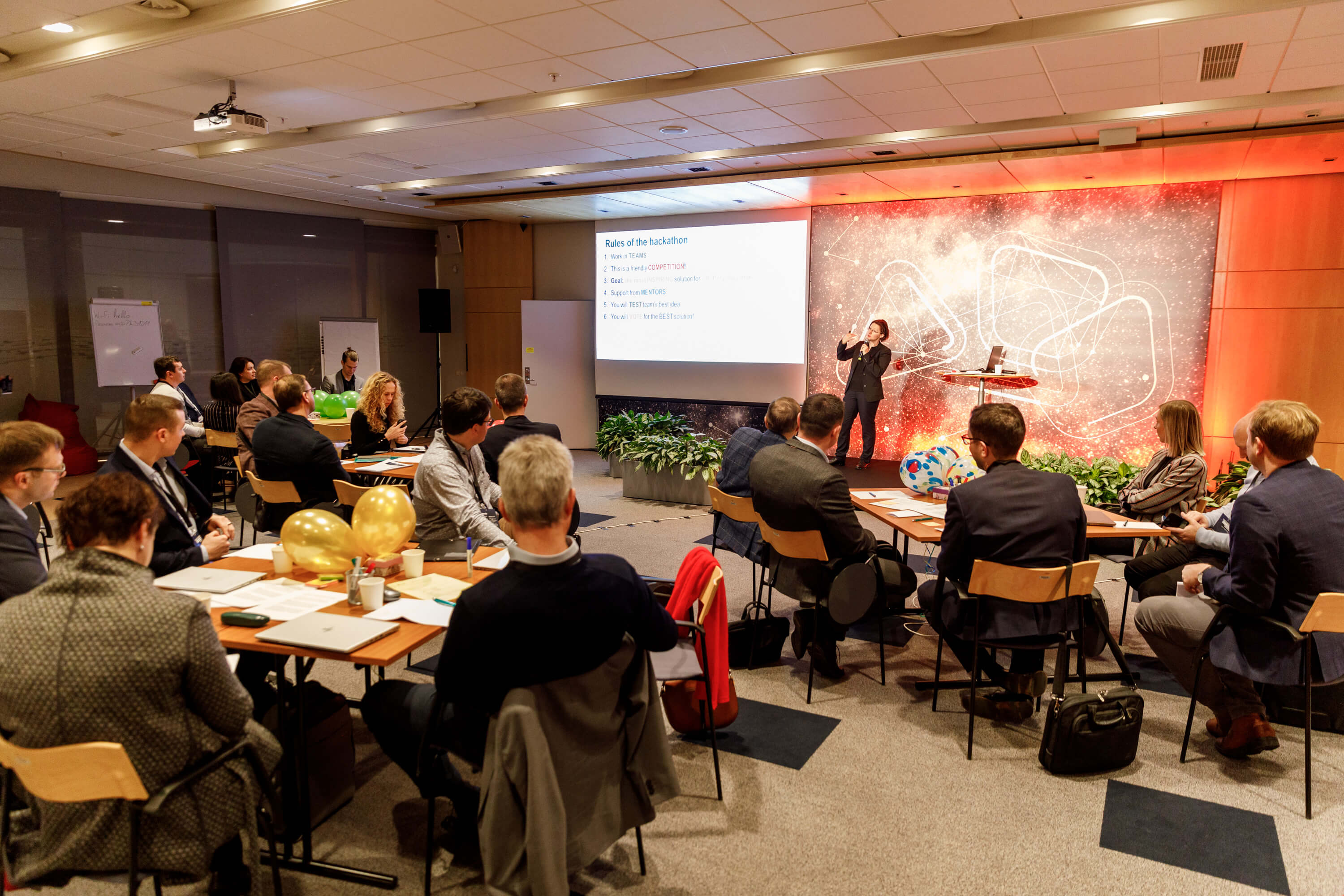
5 policy recommendations:
1. Cross-border travel of autonomous vehicles
Current problem: Current legislation does not support cross-border travel of autonomous (fully and partially) vehicles.
Solution: The team worked to create an extensive list of things that policymakers need to solve or include in the current legislation to truly enable the creation, testing, and deployment of autonomous vehicles. The list included chapters such as: cross-border travel; cyber incidents; mandatory reactions to an incorrect read of a traffic sign; connectivity issues; liability issues.
The team also elaborated the chapter of cross-border travel and created a roadmap of how policymakers should enable the cross-border travel of autonomous vehicles.
This team won 1st place at the 5G Policymakers’ hackathon, as well as the Latvian Mobile Telephone award.
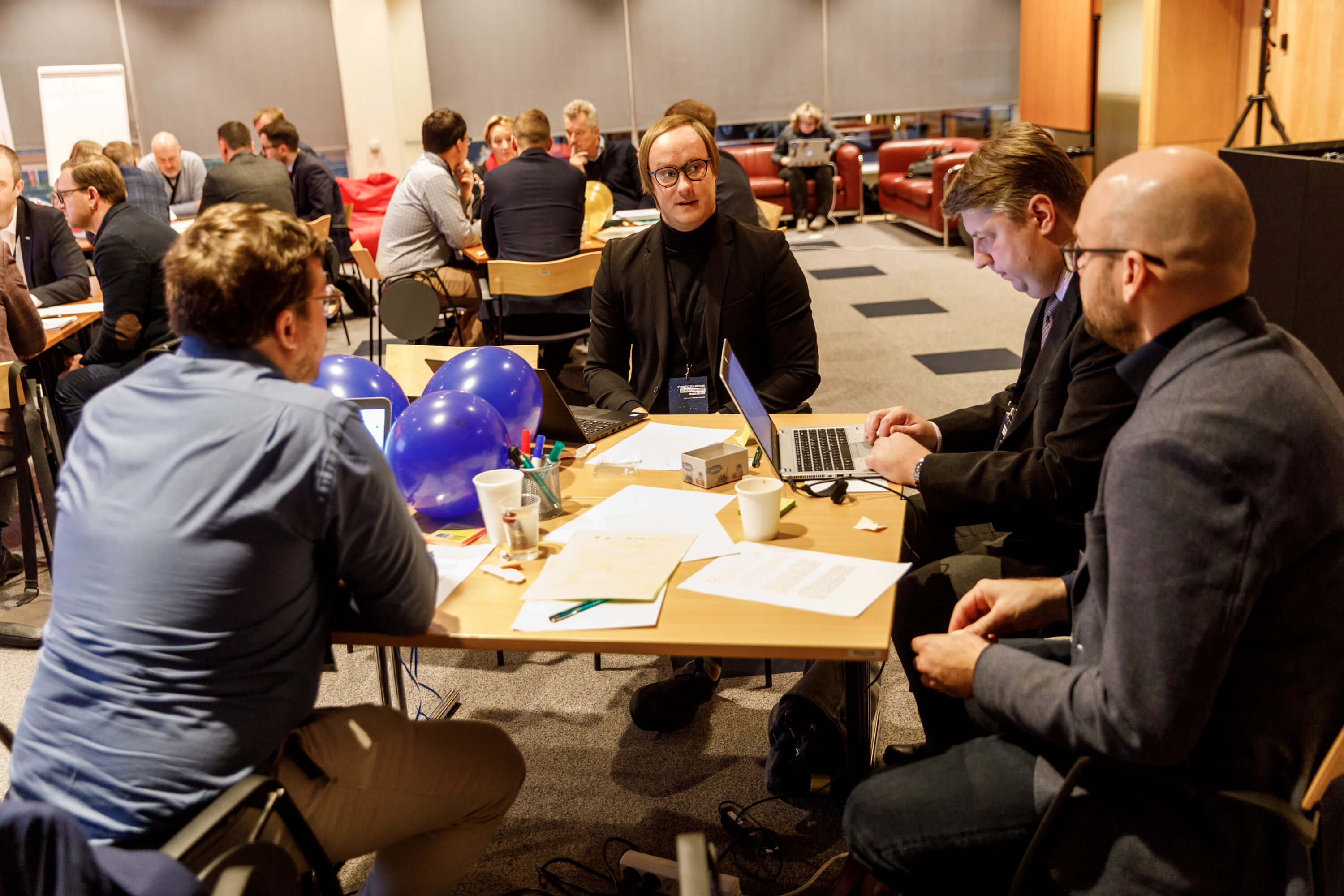
2. Cross-border travel of unmanned aerial vehicles
Current problem: The Baltic Sea region and Europe are not using the full economic potential of our airspace. The potential is not used mainly because of the strict and non-aligned regulations regarding autonomous unmanned aerial vehicles between the countries.
Solution: The team defined that the solution for this is an integrated UTM platform on a regional level around the Baltic Sea, where the information of all the involved parties would be integrated in real-time: general aviation, unmanned aerial vehicles, law enforcement, meteorological organizations, infrastructure owners and many more.
The team believed that this integrated UTM platform will allow very safe, transparent and (commercial) user-friendly usage of unmanned aerial vehicles, thus allowing to use the full potential of future use cases.
The team also pointed out that the platform will need to be integrated into the legislation, as for the platform to work, every involved party should use it.
The team also created a roadmap for policymakers on how to create the integrated UTM platform.
This team’s solution was awarded the Rohde & Schwarz award.
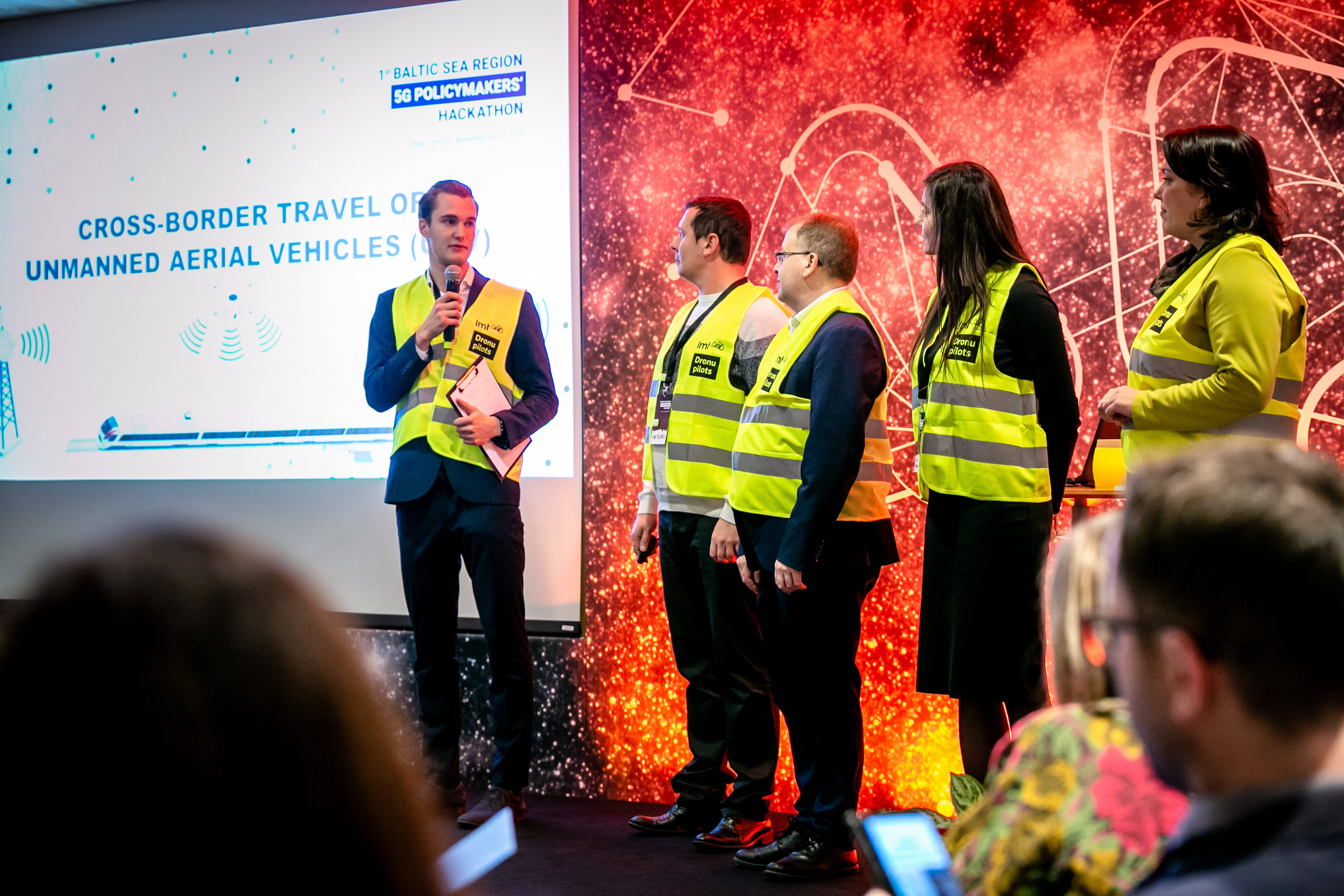
3. Data in smart city #1
Current problem: Data is a key input for finding and developing different innovative solutions to reach different Sustainable Development Goals (SDG) and to make our cities truly smart. The team identified the regulatory barriers that are already apparent for the development of a data cooperation platform at a local, national, and regional level. The identified barriers were - regulation on personal data and lack of trust in a multi-stakeholder environment preventing innovative solutions.
Solution: The team worked to find regulatory and technical solutions that enable sustainable innovations while maintaining trust in an unpredictable multi-stakeholder environment. As an example, they took city waste management.
The team pointed out that it is most necessary to adopt standards, e.g. on interoperability and security for data formats, interfaces, APIs and even semantics. And it is policymakers’ task to set up and manage a data broker/data sharing platform by starting local – in smart cities.
The team created a list of suggestions/recommendations for policymakers on how the data should be managed, standardized and used to provide better municipal services and safely provide the date for the private sector for new service creation.
This team’s solution received the European Commission Representation in Latvia award.
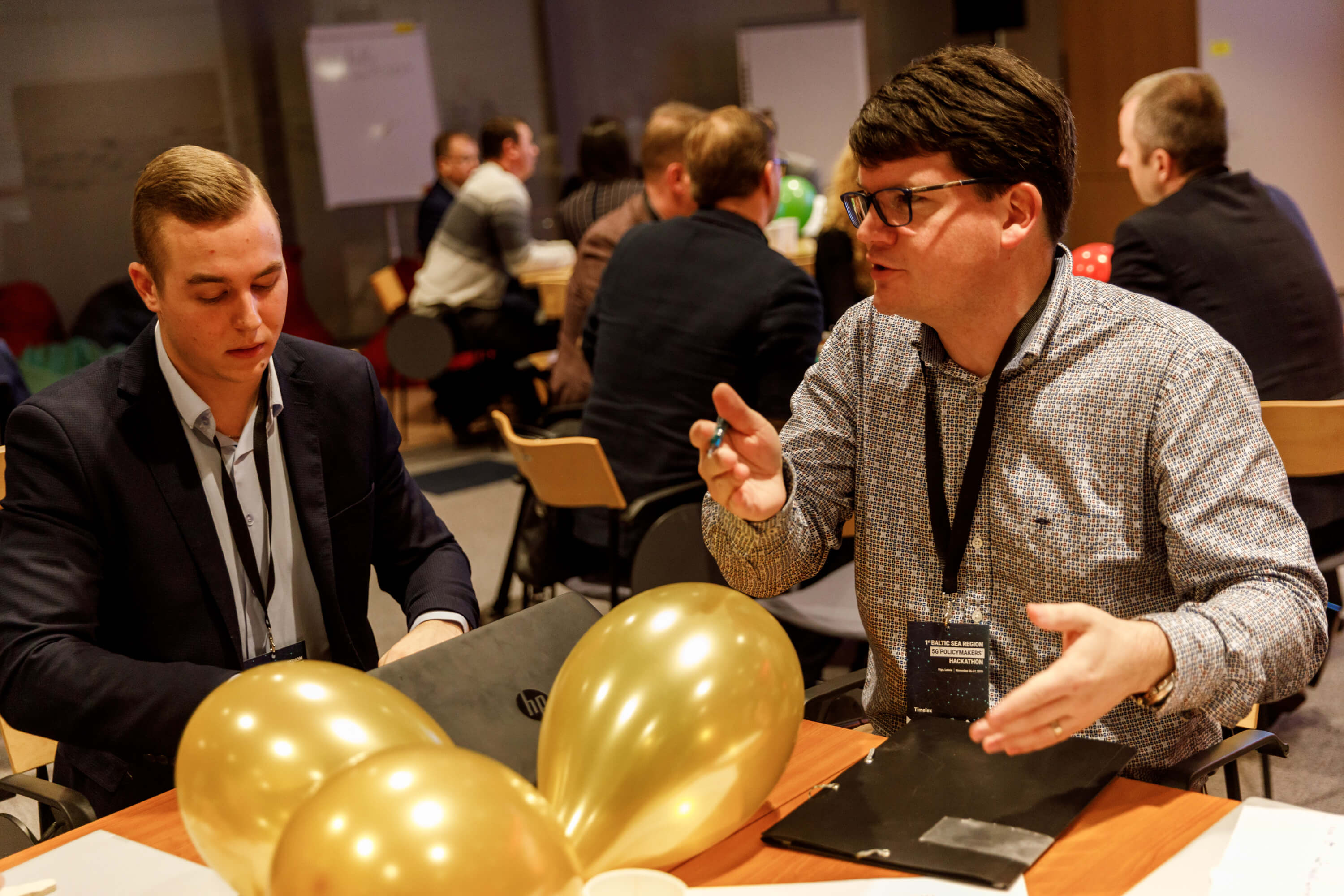
4. Data in smart city #2
Current problem: The countries in the Baltic Sea region don’t use the full potential of smart city technologies, due to the lack of real-life testing opportunities.
Solution: The team worked to create recommendations for policymakers on how to create legislation for innovation zones, which would have special regulations, thus allowing smart city solution creation, testing, and deployment. Only with these special innovation zones and the regulatory framework can the region increase its economic competitiveness.
The team created recommendations for what needs to be done at national legislation, governmental regulation, and municipal legislation levels.
The team pointed out that the format of the legislation/regulation should be in the format of open-source script that could be easily used in other countries as well, thus allowing a faster transfer of good practices to other countries within the region. Needless to say, this approach of legal framework in an open-source script format can be used in other sectors.
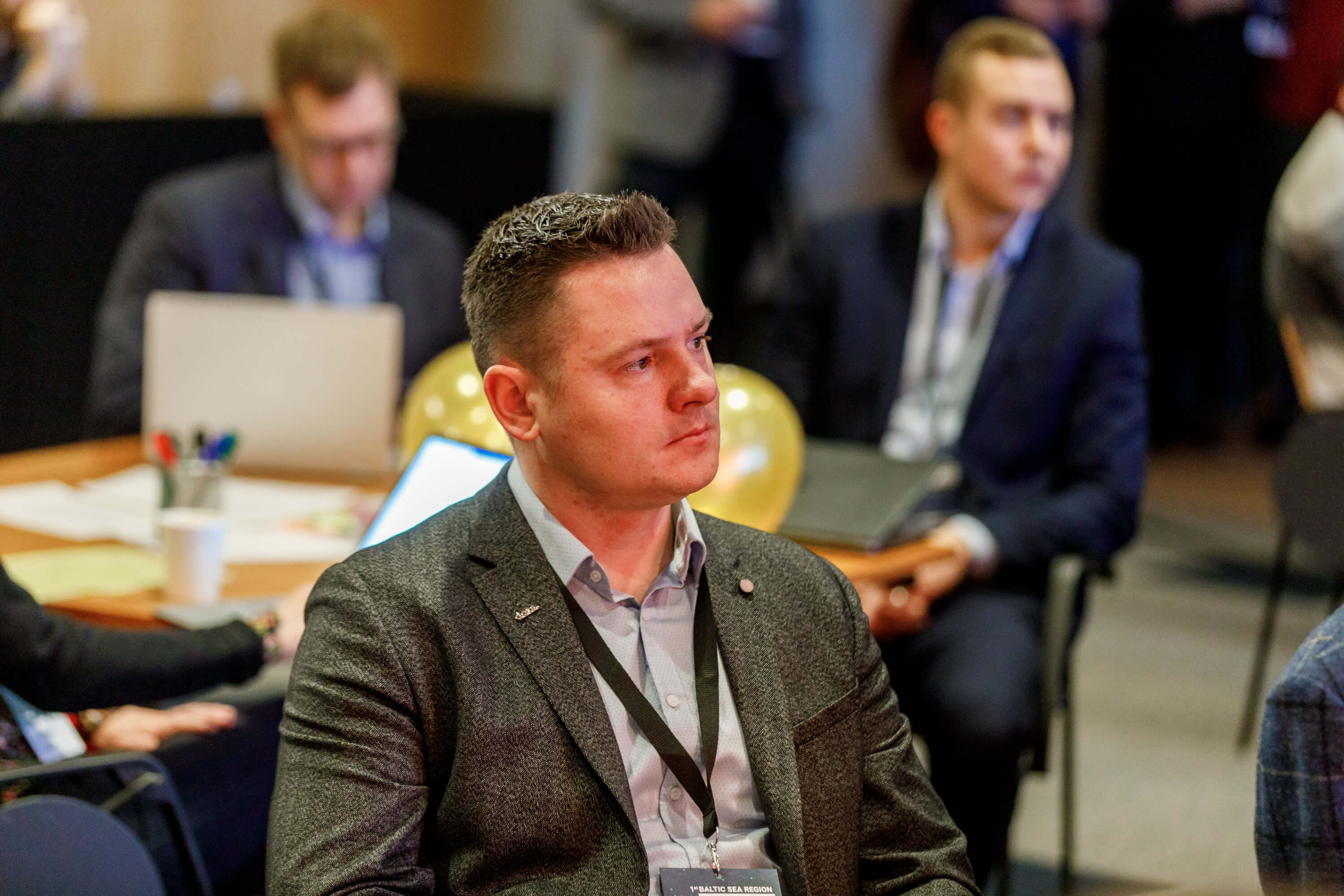
5. Accident resolution
Current problem: Current local laws of civil liability in EU countries aren't suited to the current technological environment, since different civil liability principles exist in each country. When other stakeholders are involved, the liability concept becomes much more complex, since accidents can be caused not only by traffic participants, but also due to faults in the mobile network or due to the fault of the manufacturer. Thus, the principle that the vehicle driver/holder should be liable for any accident becomes ill-fitted.
Solution: As other teams, this team provided many recommendations on how to improve the environment for innovations. The team created recommendations on how to improve data collection, the division of liability, liability, and unified technical standards.
The team elaborated on their idea of a legal and technical framework for data collection from the vehicle, roadside infrastructure, and other road traffic participants for accident prevention and resolution. The solution included the necessity to create technical standards for the exchange of data; legal framework (determining the length of data retention, subjects to be obliged to submit data, the volume of data to be submitted etc.).
The team decided policymakers should initiate the creation of universal black boxes, which should be standardized and used in autonomous vehicles and infrastructure.
This team’s solution received the Microsoft award.
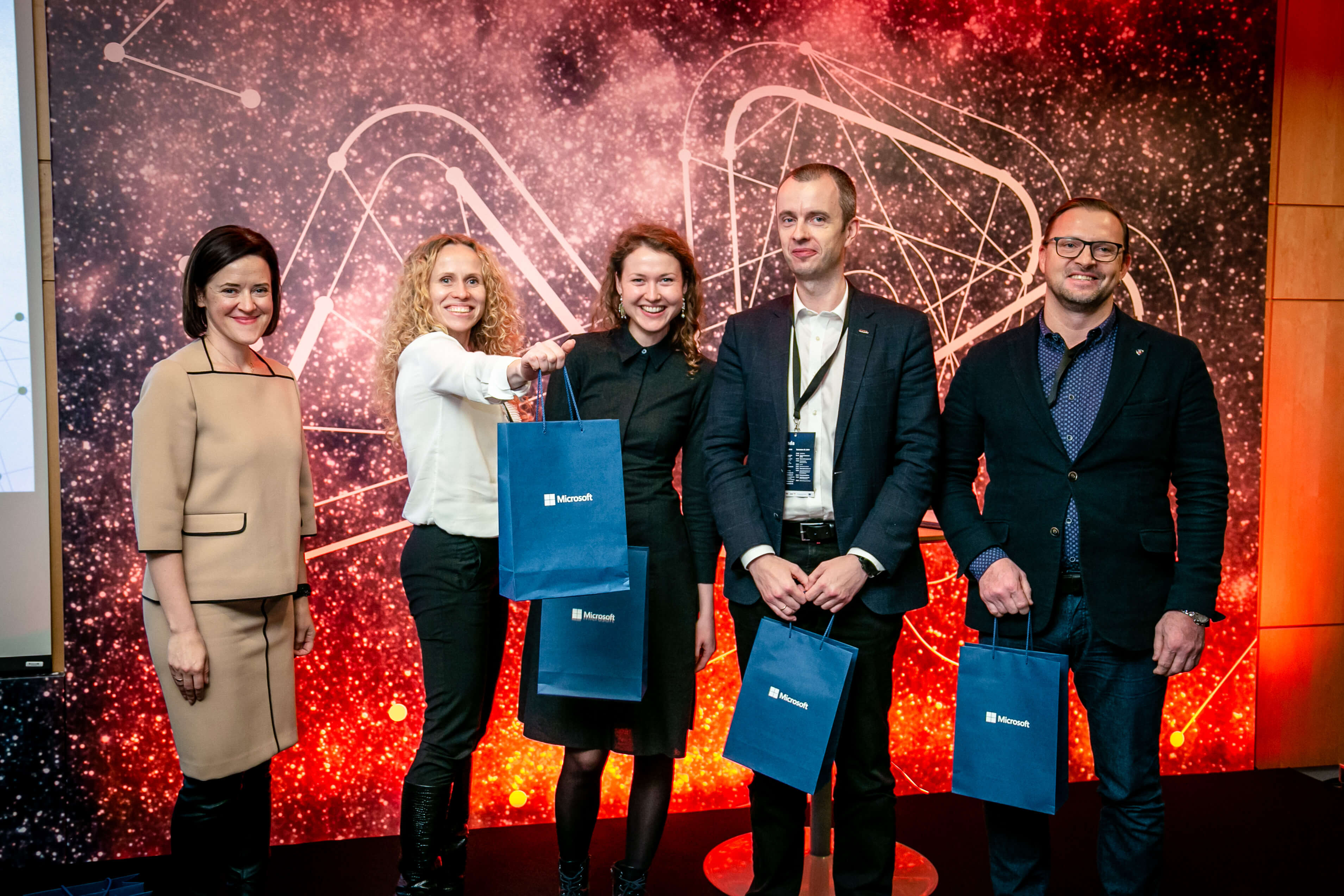
Next Post
08.12.2019
News
